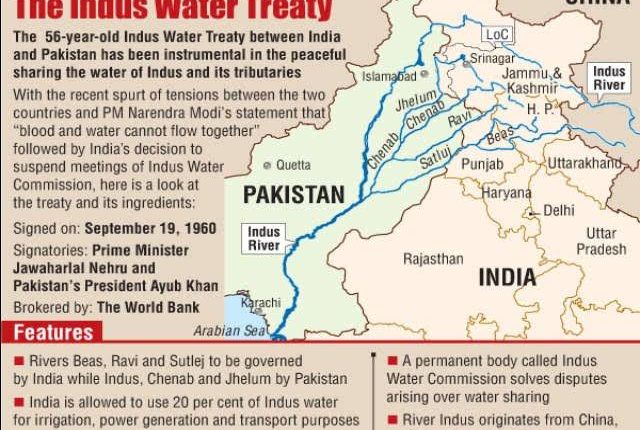There is no denial from the fact that the recent outbreak of coronavirus pandemic has caused long-lasting damage in various spheres, due to which the economies of many countries are on ventilators. Whereas, if the foreign policies are discussed in this region then the signs are not positive and the way in which tensions are escalating can later turn out to be a disaster. The incessant war with Pakistan, the border dispute with China, misunderstanding with Bhutan, and shockingly the recent conflict with Nepal – all show a fragile state of India in the region.

Countries in the region pay less heed to the importance of shared water bodies, despite their inter-dependence. As populations grow, the demand for water expands.
From the Indus river basin to the interconnected Ganga-Brahmaputra-Meghna (GBM) River basin, how India and its neighbors successfully collaborate and cooperate is critical to the region’s future and people that account for close to 15% of the world’s population.

Due to continuous clashes between the borders and absence of strong policies, treaties, and agreements, the door for mistrust and tension is always open. Without strong bilateral and multilateral institutions to manage, the shared waterways and river systems are often subject to the vagaries and uncertainties of geopolitics.
As a reaction of the Doklam crisis in 2017, China had violated the Memorandum of Understanding (MoU), by withholding monsoon data which is critical for flood management in northeast-India. Later in 2019, following the Pulwama attacks, India’s plan to divert water flowing into Pakistan gained momentum.
A 2016 UN Commission report places the Ganga-Brahmaputra-Meghna (GBM) basin as the most vulnerable in the world based on indicators of water quality, quantity, ecological impact, and lack of governance, socioeconomic indicators, and others. Due to the lack of governance in the region can result in detrimental situations.
Despite sharing hundreds of rivers with the neighbors, India does not have more than 30 agreements. And this is due to the absence of understanding between the countries. The recent tension with Nepal, misunderstanding with Bhutan, and Galwan valley border clash on Line of actual control (LAC) with China indicates that the future regarding water-security is very bleak.
The India-Nepal agreement known as Joint Ministerial Commission on Water resources and India-Bangladesh agreement – Joint Standing Technical Committee provides platforms for further dialogue and diplomacy. However, they are principally designed for dealing with technical issues regarding storage to data, logging and gauge houses,
The need for basin-wide management of shared water resources is clear, for the future of the waterways and the population that depends on it. But success will not be easy if the political wars do not come to halt. The region cannot afford any water-war and any such development can be dangerous.
[zombify_post]



